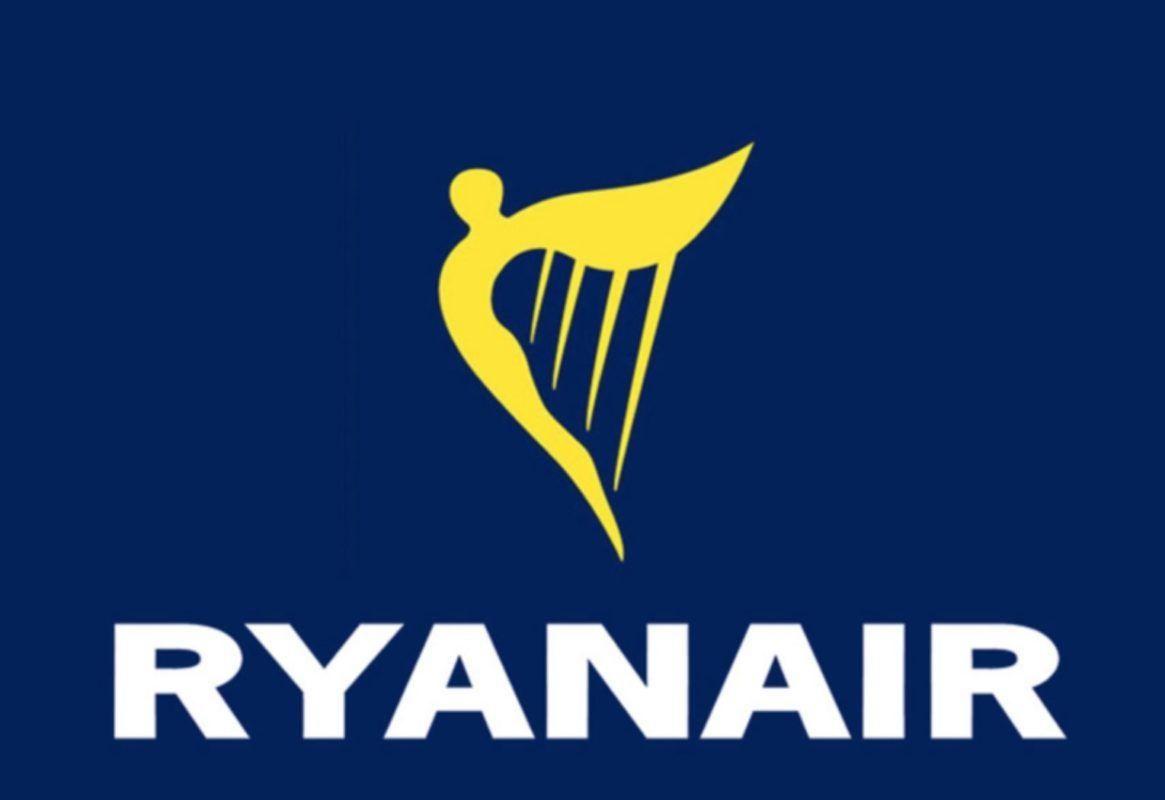
Ryanair Updates
This page will be continually updated with any Ryanair updates
March 3rd 2024 - Ryanair have just announced the opening up of nine new routes from Alicante airport with the start of the new high season. The nine new routes take the number of destinations with Ryanair from the airport to a massive 89 in 21 countries, with 10 of them being to other Spanish airports.
The new routes are Cardiff and Norwich (UK) Münster/Osnabrück (Germany) Rzeszów (Poland) Zagreb (Croatia) Sofía (Bulgaria) and Barcelona (obvs Spain!) These are added to a new route to Budapest (Hungary) which was announced a few days before. Flights to Lisbon in Portugal are also going to run year round.
March 2024 - The Dublin-based airline said it will be forced to make 'minor schedule changes' as it will only receive 40 of the 57 planned Boeing 737 MAX 8200 planes before the end of June.
The carrier said in a statement: 'Ryanair will now have to reduce approximately 10 aircraft lines, flying for the peak summer months of July, August and September.
'This will cause some minor schedule changes in the context of Ryanair's 600 aircraft fleet and will reduce frequencies on existing routes rather than cutting new routes.' 'We regret any inconvenience caused to some customers and our airport partners by these enforced summer 2024 schedule changes.'
They have already implemented schedule cuts at some of its 'higher cost airports' such as Dublin, Milan Malpensa, Warsaw Modlin and four Portuguese airports.
If you have any questions about your up and coming summer flights please contact Ryanair.
20th Aug 2022 - Ryanair intensifies its war against 'online' travel agencies
Ryanair has stepped up its war against online travel agencies , which it accuses of charging high commissions for an unnecessary intermediation service. The low-cost airline on Wednesday issued a warning to customers about the "fake" boarding passes provided by the travel site Kiwi.com and has informed that they will no longer be accepted by the airline.
Ryanair state that in accordance with EU regulation 2015/1998, it is mandatory for passengers to complete Ryanair's check-in process directly to ensure they are informed of all necessary regulatory and safety protocols when travelling. However, it considers that Kiwi.com circumvents these aviation regulations by issuing its own boarding passes, "which are not valid on Ryanair flights".
Therefore, from this Wednesday (18th Aug), any Ryanair passenger with a boarding pass issued by Kiwi.com will be denied boarding for not having complied with Ryanair's safety and security protocols during check-in. Customers who wish to retrieve an official boarding pass can do so by accessing their reservation through Ryanair.com or on the airline's app.
Ryanair urges travellers to only book directly on its website or mobile app and to avoid buying through third-party agents who are not authorised to sell Ryanair flights or to issue boarding passes.
Ryanair has obtained a court order in the Czech Republic requiring Kiwi to stop replacing customers' email addresses with fake email addresses, preventing the airline from communicating directly with its passengers.
Other online travel agencies may also be affected by the above.
Ryanair implemented the "Verified Seal", which is a guarantee for customers that they are booking directly on Ryanair's website.
Dara Brady, Ryanair´s Marketing Director said in a statement that customers who have booked through Kiwi.com should contact the agency to obtain the Ryanair booking reference.
3rd February - Ryanair has been ordered to remove an "irresponsible" advert depicting misleading claims about coronavirus vaccinations by the advertising watchdog. (advert pictured below)
The Advertising Standards Authority (ASA) said it had received 2,370 complaints about the advert - which was shown from December to January - making it the third most complained about advert of all time.
Ryanair stated the advert was meant to be "uplifting" and did not consider the content was insensitive to people who had had COVID-19 or who had lost people to the virus". Others felt the advert trivialised ongoing restrictions and effects of the pandemic.
Ryanair updates
December 27th 2020
Ryanair have once again come up with an advertising campaign that seems to have upset many and has caused massive backlash all over social media. The new television campaign tells travellers to “jab and go!”. This advert show a gloved handholding a syringe and a vial labelled “vaccine,” . The advert is also on the front page of their website.

Join the Benidorm Seriously Facebook Group for discussions
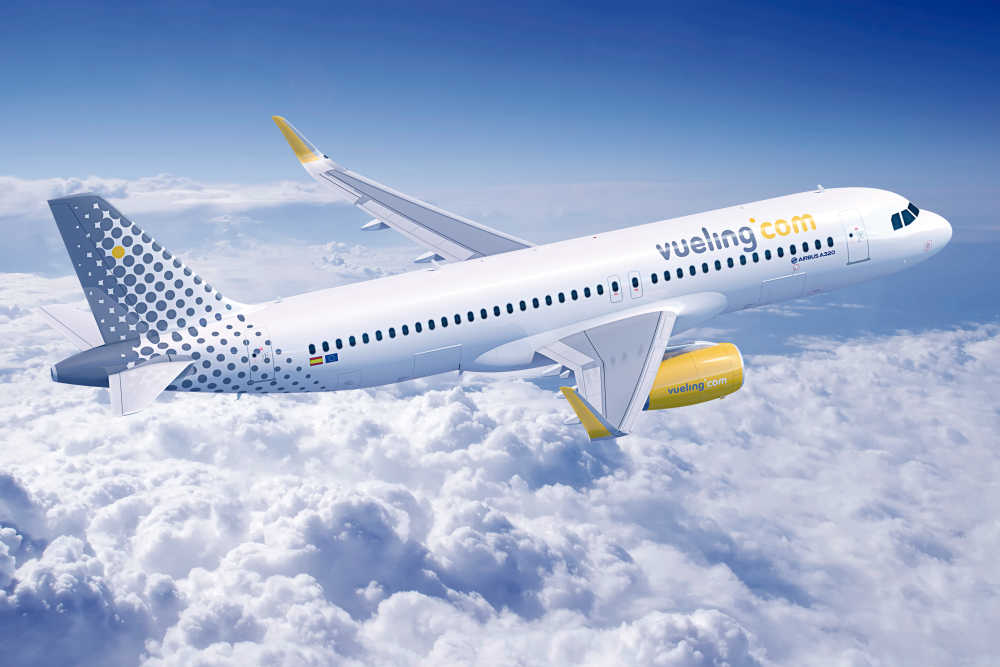
Vueling airline Updates - Vueling the second biggest company at Alicante-Elche airport after Ryanair, stops flying and dismisses 4,000 workers
Vueling has presented a temporary employment regulation file (ERTE) that will affect its 3,800 workers in Spain for three months due to the drop in activity registered by the Covid-19 crisis, knowledgeable sources told Europa Press. Vueling is the second company at Alicante-Elche airport with 1.7 million passengers in 2019 , second only to Ryanair.
From Alicante it flew to Bilbao, Barcelona -key because it is the only company that operates this route-, Santander, Ibiza, Asturias, Lanzarote, Gran Canaria, Rome, Amsterdam, London, Mallorca, Rome and Algeria .
To these 3,800 employees, another 200 from the human team of France and Italy are also affected, although these workers are affected by the agreements of their respective countries.
The airline belonging to the IAG holding and had negotiated this measure last week with union representatives and communicated the ERTE via telematics last Friday to the government.
The ERTE is initially for three months, although it foresees the possibility of reducing this time if the crisis caused by the coronavirus pandemic allows it, as well as foreseeing to extend it if required.
The file, presented due to force majeure, foresees reductions of up to 90% of the normal working day for pilots and cabin staff and 80% of that of the rest of the airline's staff.
"It is not a reduction in the number of people, but in working hours," explained the same sources, who have specified that when operating 25% of their flights, pilots and TCP will have their variables.
Please note this story has been translated from Spanish to English so some detail may be slightly lost in translation. Read the full story in Spanish HERE at Diarioinformacion

Superdrug is a health and beauty favourite, stocking all the last minute travel essentials you need at great value prices.
Superdrug stores are located in most UK departure lounges after security. You can pre-order items before you travel and collect it from the Superdrug store after security, giving you greater space in hand luggage for other essential items.
Leeds Braford Airport - 01132 397498. Simply call the store 5 days before you travel and staff will arrange for your order at arrival at the airport. Superdrug also offer 10% discount with a valid NUS card.
Bristol Airport - Simply order 7 working days before you fly by calling on 01275 475565. The Superdrug Beauty Card is welcomed at the Bristol Airport store so you can also earn points when you purchase.
Belfast Airport - 028 9447 0596, Order 6 days before you travel. Superdrug also offer 10% discount to any passengers over the age of 60.
East Midlands Airport - 01332 811 629, Order fourteen days before you travel.
BOOTS ALSO DO A SIMILAR SERVICE
Use the reserve from home service to guarantee your items from Boots before you fly. Simply visit the Boots website to browse and reserve your items
Please Note : Orders should be made 5-6 days in advance to guarantee arrival
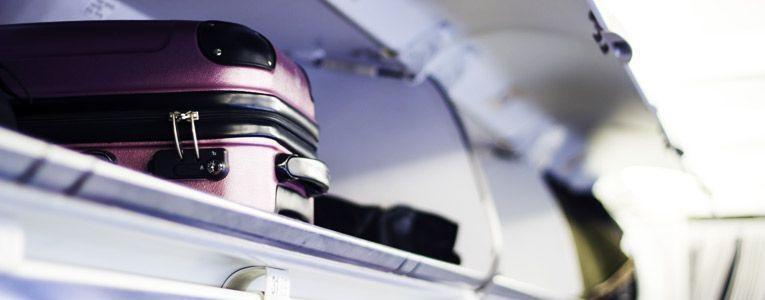
Hand luggage restrictions at UK airports
There are Hand luggage restrictions on what items you can take in both your hand luggage and hold luggage when boarding a plane in the UK.
There are different rules if you’re taking goods to sell or temporarily abroad for business reasons, for example sales samples, professional equipment or musical instruments for a performance.
Airport security staff won’t let anything through that they consider dangerous - even if it’s normally allowed in hand luggage.
Hand luggage allowances
Check with your airline how many and what size bags you can take on the plane with you.
February 26th 2023 - Travel News - Dates have been announced for the installation of the new 3D scanners at Spanish airports. These scanners will mean the end of the restrictions on liquids, and also the need to get laptops etc out of your bags.
The first airports will be those of Madrid Barajas, and Barcelona at the end of 2023 or beginning of 2024...This will be followed by Palma Mallorca, then the other airports of the AENA network. The new scanners will see an investment of almost 1,200 million euros.
Taking liquids through security
There are restrictions on the amount of liquids you can take in your hand luggage. If possible, pack liquids in your hold baggage (luggage that you check in).
Liquids include:
- all drinks, including water
- liquid or semi-liquid foods, for example soup, jam, honey and syrups
- cosmetics and toiletries, including creams, lotions, oils, perfumes, mascara and lip gloss
- sprays, including shaving foam, hairspray and spray deodorants
- pastes, including toothpaste
- gels, including hair and shower gel
- contact lens solution
- any other solutions and items of similar consistency
If you do take liquids in your hand luggage:
- containers must hold no more than 100ml
- containers must be in a single, transparent, resealable plastic bag, which holds no more than a litre and measures approximately 20cm x 20cm
- contents must fit comfortably inside the bag so it can be sealed
- the bag must not be knotted or tied at the top
- you’re limited to 1 plastic bag per person
- you must show the bag at the airport security point
Liquids in containers larger than 100ml generally cannot go through security even if the container is only part full. There are some exemptions.
Hand luggage restrictions
Exemptions
You can take liquid containers larger than 100ml through security if they:
- are for essential medical purposes
- are for special dietary requirements
- contain baby food or baby milk
You can also take liquids bought at an airport or on a plane (such as duty free) through security if:
- the items are sealed inside a security bag when you buy them
- the receipt for the items is sealed in the security bag and visible
You must not open the security bag until you reach your final destination. Airport staff may need to open the items to screen the liquid at the security point.
Liquid restrictions outside the EU
Countries outside the EU might have different rules on carrying liquids as a transit or transfer passenger. You should check these rules with the relevant airlines and airports before travelling.
Bringing food items - When entering the EU from the UK, you're not allowed to bring any food known as POAO – products of animal origin – and most fruit. The ban applies to both your cabin and hold baggage and extends to items such as cakes that contain fresh cream.
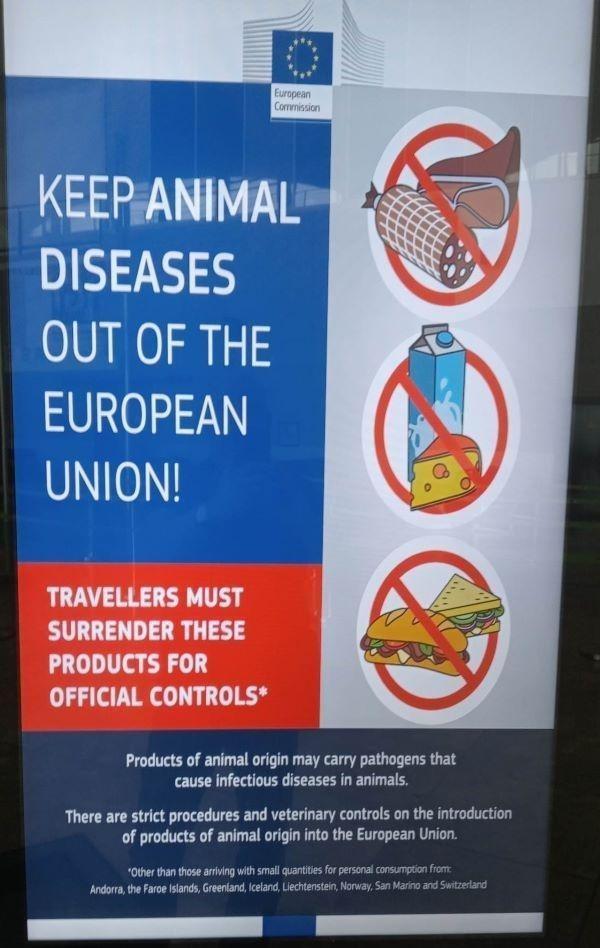
Hand luggage restrictions
Lighters
You can only carry 1 lighter on board. You should put it inside a resealable plastic bag (like the ones used for liquids), which you must keep on you throughout the flight. You cannot:
- put it in your hold luggage
- put it in your hand luggage after screening
Vape devices and e-cigarettes should be packed in carry-on luggage only, with a maximum of 20 batteries. Refills and e-liquids must also be kept in hand luggage with a maximum bottle size of 100ml. You can take up to 20 batteries on board. These can be packed in your hand luggage but not in your checked baggage.
- Make sure your vape device is completely switched off, not just in sleep mode.
- Any spare batteries must be individually wrapped to prevent a short-circuit and packed in carry-on luggage only.
- E-Liquids can be stored in your hand luggage in clear plastic bags in bottles not exceeding 100ml.
- We recommend that you empty your tanks and store them in a clear plastic bag in your hand luggage as the pressurisation in the cargo area may cause your tank to leak or crack.
Food and powders
Food items and powders in your hand luggage can obstruct images on x-ray machines. Your bags may need to be checked again manually by security. You can put these items in your hold luggage to minimise delays.
Baby food or baby milk
When travelling with a baby you’re allowed to take enough baby food, baby milk and sterilised water for the journey. There is no legal limit to how much you can take however check with your airport before you travel.
You can carry breast milk in hand luggage even if you’re not travelling with a baby. You cannot carry frozen breast milk in hand luggage.
Individual containers of breast milk must hold no more than 2,000ml. Each container will need to be screened at the security point. Airport staff might need to open the containers to screen the liquids.
| Allowed in hand luggage | Allowed in hold luggage | |
|---|---|---|
| Breast milk | Yes, in containers up to 2,000ml | Yes |
| Frozen breast milk | No | Yes |
| Formula milk, cow’s milk | Yes (baby must be present) | Yes |
| Sterilised water for the baby | Yes (baby must be present) | Yes |
| Soya milk for babies | Yes (baby must be present) | Yes |
| Baby food | Yes (baby must be present) | Yes |
| Cooling gel packs | Yes | Yes |
Personal items
Musical instruments
Contact your airline before you book if you want to travel with a large musical instrument. You may need to make special arrangements, such as buying an extra seat.
Musical instruments will be screened separately.
Mobility aids
Pushchairs, walking aids and wheelchairs are usually allowed in the cabin, but will need to be security screened first.
For battery-powered wheelchairs or mobility aids check with your airline first.
Hand luggage restrictions
Other personal items
| Allowed in hand luggage | Allowed in hold luggage | |
|---|---|---|
| Corkscrew | No | Yes |
| Spoon | Yes | Yes |
| Knife (with a sharp or pointed blade and/or blade longer than 6cm) | No | Yes (check with your airline) |
| Small scissors (with blades no longer than 6cm) | Yes | Yes |
| Large scissors (with blades longer than 6cm) | No | Yes (check with your airline) |
| Round-ended/blunt scissors | Yes | Yes |
| Fixed-cartridge razor blades (disposable razor) | Yes | Yes |
| Nail clippers/nail file | Yes | Yes |
| Tweezers | Yes | Yes |
| Knitting needles | Yes | Yes |
| Sewing needle | Yes | Yes |
| Umbrella | Yes | Yes |
| Walking stick/cane, walking aid | Yes | Yes |
| Pushchair | Yes | Yes |
| Wheelchair | Yes | Yes |
| Safety matches | Yes | No |
| Non-safety matches | No | No |
| Fireworks, flares and other pyrotechnics, including party poppers and toy caps | No | No |
| Cigarette lighter | No, but you can put a lighter in a plastic liquids bag and keep it on your person | No |
| Contact lens solution | Yes (up to 100ml) | Yes |
Medicines, medical equipment and dietary requirements
You’re allowed to carry the following in your hand luggage:
- essential medicines of more than 100ml, including liquid dietary foodstuffs and inhalers
- medical equipment, if it’s essential for your journey
You’ll need to carry proof that the medication is prescribed to you (for example a letter from your doctor or a copy of your prescription) if it’s both:
- in liquid form
- in a container larger than 100ml
You do not need to show proof if the medication is either:
- in tablet form
- liquid in a container that’s 100ml or smaller
There are different rules if you are travelling with medicine that contains a controlled drug.
Airport staff might need to open the containers to screen the liquids at the security point. Medical equipment is screened separately.
| Allowed in hand luggage | Allowed in hold luggage | |
|---|---|---|
| Tablets and capsules | Yes | Yes |
| Essential liquid medicines | Yes | Yes |
| Hypodermic syringes | Yes | Yes |
| Inhalers | Yes | Yes |
| Cooling gel packs | Yes | Yes |
| Medical equipment (for example CPAP and TENS machines) | Yes | Yes |
| Special food and liquids needed for medical reasons | Yes | Yes |
| Oxygen cylinders | Contact your airline | Contact your airline |
Electronic devices and electrical items
You can only take certain electronic devices and electrical items on flights to the UK.
| Allowed in hand luggage | Allowed in hold luggage | |
|---|---|---|
| Mobile phone | Yes | Yes |
| Laptop | Yes | Yes |
| Tablet devices | Yes | Yes |
| MP3 player | Yes | Yes |
| Hairdryer or straighteners | Yes | Yes |
| Travel iron | Yes | Yes |
| Electric shaver | Yes | Yes |
| E-cigarettes | Yes | No |
Some airlines might also have different restrictions. Check with your airline before you travel if you’re not sure about what you can take as hand luggage.
Cameras
You can usually take camera equipment in your hand and hold luggage.
There might be restrictions on specialist equipment, for example professional video cameras.
Make sure your devices are charged
Make sure your electronic devices are charged before you travel. If your device does not switch on when requested, you will not be allowed to take it onto the aircraft.
Batteries for your device
Check the restrictions on certain types of batteries or contact your airline if you’re not sure what you can carry.
Gas-powered hair curlers
You can take hair curlers containing a gas cartridge in hand or hold luggage as long as the safety cover is fitted at all times. You must not take separate gas cartridges on board.
Sports equipment
| Allowed in hand luggage | Allowed in hold luggage | |
|---|---|---|
| Sports parachute | Yes | Yes |
| Heavy bats and sticks (including baseball, softball and cricket bats) | No | Yes |
| Tennis racquets | Yes | Yes |
| Snooker, pool or billiard cue | Yes | Yes |
| Golf clubs | No | Yes |
| Darts | No | Yes |
| Walking/hiking poles | No | Yes |
| Fishing rod | Yes | Yes |
| Catapult | No | Yes |
| Firearms (including replica firearms) | No | Check with your airline before you travel |
| Harpoon or spear gun | No | Check with your airline before you travel |
| Crossbow | No | Yes |
| Martial arts equipment (including knuckledusters, clubs, coshes, rice flails and nunchuks) | No | Yes |
| Diving equipment | Check with your airline before you travel | Check with your airline before you travel |
Work tools
| Allowed in hand luggage | Allowed in hold luggage | |
|---|---|---|
| Tool with a blade or shaft longer than 6cm (for example chisel) | No | Yes |
| Drill and drill bits | No | Yes |
| Stanley knife | No | Yes |
| Saw (including portable power saw) | No | Yes |
| Screwdriver | No | Yes |
| Hammer | No | Yes |
| Pliers | No | Yes |
| Wrench or spanner | No | Yes |
| Bolt gun or nail gun | No | Yes |
| Crowbar | No | Yes |
| Blowtorch | No | Yes |
Chemicals and toxic substances
You cannot take any of these items as hand luggage or in the hold:
- oxidisers and organic peroxides, including bleach and car body repair kits
- acids and alkalis (for example spillable ‘wet’ batteries)
- corrosives or bleaching agents (including mercury and chlorine)
- vehicle batteries and fuel systems
- self defence or disabling sprays (for example mace, pepper spray)
- radioactive materials (including medicinal or commercial isotopes)
- poisons or toxic substances (for example rat poison)
- biological hazards (for example infected blood, bacteria, viruses)
- materials that could spontaneously combust (burst into flames)
- fire extinguishers
You cannot take any guns or firearms (including air rifles and starting pistols) as hand luggage. You may be able to take them as hold luggage - check with your airline before you travel.
You cannot take any of these items as hand luggage or in the hold:
- blasting caps
- detonators and fuses
- imitation explosive devices (including replica or model guns)
- mines, grenades, and other explosive military stores
- fireworks and pyrotechnics
- smoke canisters
- smoke cartridges
- dynamite
- gunpowder
- plastic explosives (including black powder and percussion caps)
- flares
- hand grenades
- gun cigarette lighters
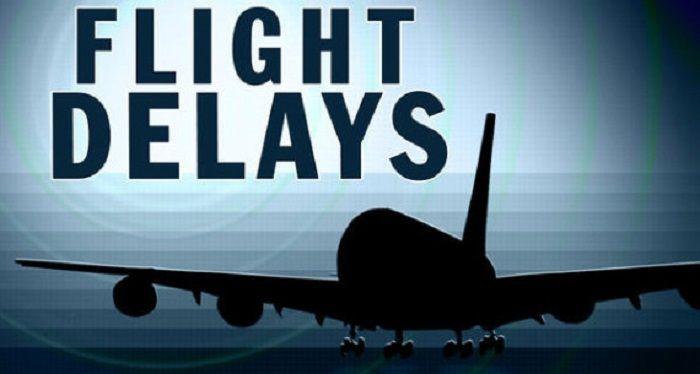
How To - Cope with Airport Delays
Nothing throws a wrench into your travel plans quite like airport delays. And there's no shortage of reasons why your flight might be late: unpredictable weather, technical glitches, airport security problems, congested airways etc etc.
Whether flying saucers or snowstorms are keeping you grounded, it's important to know how to protect yourself in the event of a flight delay. First, you need a backup plan. Make sure you have options, like a hotel reservation or an alternative flight, in case you're stranded. Second, you need to know your rights as a passenger. Airlines aren't required by law to compensate passengers for delayed or cancelled flights, and each carrier has its own policy on this. Read (or at least have access to) your airline's contract of carriage in case of emergency.
For more on what rights you have as a flier, check out your passenger rights.
Let's get on to what you can do about it if (hopefully not "when") an airport delay happens to you. Here are a few tips to help you cope in the event of software switches, storms or other airport problems.
1. Watch the weather.
When it comes to the weather, you don't need to be Michael Fish to know when a storm might affect your travel. If you are flying in winter, there's no excuse not to know at least a couple days ahead of time that your flight could be threatened. Particularly in the case of a winter storm, weather forecasting is pretty reliable 48 - 72 hours out. Summer storms can be less predictable, as thundercloud formation can occur fairly quickly. But forewarned is forearmed, and it's not like you need to look for red skies in the morning of your travel these days to know that you might have a problem.
2. Consider getting a hotel reservation.
Some hotels don't charge your card until you show up at the front desk, so you can usually safely book a room and cancel if your flight does take off reasonably on time. Make sure to ask about cancellation policies to be on the safe side when you call.
If you're stuck in an airport without easy Internet access, a good tactic is to have on hand the phone number of your preferred booking website. When using this tactic, check out airport hotels first. Look for off-airport hotels that offer shuttle service to the airport so you can ditch your rental car or otherwise count on a ride to the airport without too much trouble or expense.
3. Pre-program your mobile phone.
You don't need an elephant's memory to be able to call a reservation site, a hotel, your airline or any travel service outfit; you just need to program these numbers into your mobile phone before your trip starts. Save the contact number for your airline (use the frequent flier program phone number if you have elite status of any kind, as the service is better), reservation sites, car rental companies that permit drop-offs near you, and your travel agent if you have ever used one -- even if the agent didn't book you into your current jam, he or she might be able to get you out of it.
4. Know your options.
If it looks like things might get ugly, make sure you know some of the alternative flights on other airlines; if this is too much to remember, just try to remember on which airlines the best flights are available. This way, when 100,000 people are on hold, you're on the phone with another airline figuring out whether they will honour your tickets and can book you onto the next flight. If you know a few flights on a couple of airlines within a few hours of your original flight, you're way ahead of the game when you try to transfer your ticket to another airline. Ultimately you'll have to get your original airline to sign off on the transfer, but at least you'll get to the airline desk armed with information and maybe even a tentative reservation on the other airline.
A good way to do these searches is to use one of the Skyscanner sites The best of these allow you to adjust several parameters on the fly, including airlines displayed (in case your original airline will grant exchanges only on select airlines), flight times (so you can see flights close to your original departure time first, then expand from there) and alternate airports (perhaps you can get within a reasonable drive of your original airport). You can also filter results by the duration of your itinerary, in case you are looking at absurd routes, connections or layovers on some of your results. These sites can offer a very fluid and customisable view of what is available to you airline by airline, hour by hour, airport by airport.
5. Check the airline website.
In the past, airline call centres have been utterly crippled by the high call volume that happens when there are masses of flight delays. Most airlines have figured out that the Web is a much better way to distribute information, and will have alerts, updates and sometimes even suggestions on how to proceed.
6. Call ahead to the airline.
This is likely to be your least effective tactic, as in all but the most extreme cases (and sometimes not even then), the airlines won't tell you that your plane is delayed even when the entire airport is about to shut down. This is because the airlines fare better if you show up and sleep on the floor than they do if they let you stay in your hotel room an extra day.
And of course always have the correct Travel Insurance Policy that covers airport delays and cancellations.
Happy traveling
For more information on airport delays like us on Facebook




